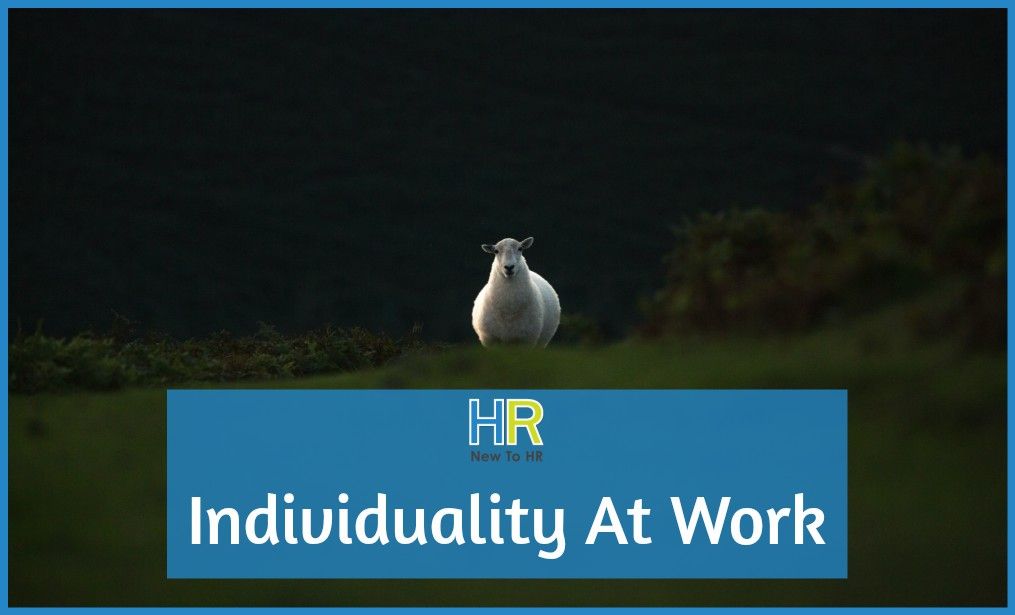
Individuality At Work
Now more than ever, the question of whether to cherish or oppress individuality at work haunts every organization. Many companies see themselves threatened by the growing trend to grant individuals more freedom and accept their uniqueness as an asset rather than a burden.
We will start by trying to give a clear definition of individuality.
Much of the fear and aversion are partly because the word shares a common root with “individualism.” An employee that enjoys being independent and self-reliant may be a threat to an organization established in cooperation, teamwork, and the overall sharing of benefits and responsibilities.
Individuality springs away from the daunting prospects of seeing your employees flee the ship the moment they acquire the knowhow.
The correct definition is a game changer;
Individuality is the quality or character of a particular person that distinguishes it from others of the same kind.
In an office that preaches teamwork, individuality might seem as a fully-fledged heresy, an approach guaranteed to infuriate your boss and put you through a lengthy disciplinary procedure meant to remove the “I” from your vocabulary forcefully.
Here at New To HR we know that you are smiling (now), because you can think of instances where this has happened to you, even in the last year. But should you really give up your “I” in your career…
It might sound like ‘lousy’ fiction, but traditional HR teams may prefer the old “square peg in a round hole” approach. No one said it could not work, but you likely end up with your “square-headed” employees crying after they lost their ‘edges‘. A geeky boss might picture multi-core processors as the technological equivalent of how employees’ brains should be paired for maximum efficiency. Fortunately, for us, our modern times had yet to train our minds to deal with 0’s and 1’s without spending some time to ponder on the grayish area in between. We are compelled by our very nature to look with pride at what makes us different and to seek some time alone to cherish that!
Killing individuality in the workplace would count as a double homicide.
The less visible victim is creativity. It might sound silly, but even the most rigorous business models require doses of lateral thinking to dig problem-solving out of the trenches. There are obvious drawbacks with too much teaming and the first to feel the handcuffs unbearable are the introverts. Like plants left un-watered, they slowly fade and end up adhering to the collective push with less and less enthusiasm. The main drawback of having a thick accent on teamwork is that alternate paths of achieving a purpose are disregarded from the start. Just to give an example, the tech revolution would have been impossible without lone wolves listening to “the call of the wild” (their individualistic nature), venturing on new trails, and eventually guiding the whole pack to a feast. It is true that most of human progress was the result of the sweaty and highly repetitive task of “rowing down in the galleys,” but there were occasions when someone broke the chains to invent better paddles or the helm.
Collaboration does not exclude individuality.
Although wearing the same jersey, team members fulfill different tasks in a sport’s game – a chessboard is similar. The same way that a chessboard is built out of unique pieces, employees see each other once the common goal has been clearly stated. Certain companies may prefer an army of pawns, rather than a chessboard full of unique pieces; each with its legal moves, strong points, and vulnerabilities. Dealing with the full spectrum of human variability can be daunting, especially in today context of workforce mobility. Whether it is about implementing a new technology, dealing with a new category of clients, or just adopting enhanced procedures, change reflects irregularities across the workforce.
Different (unique) employees have very different reactions when old ways of doing things change. Documenting a predisposition as a direct effect of one’s personality can help avoid conflicts, reduce pressure, and facilitate cooperation. Every company has all of these – the embracer, the alarmist, the researcher, or the observer. You cannot just summon them into the conference room and start grafting the qualities and reactions you would like to replace with the ones you do not.
Change reveals learning curves at very different angles.
Individuality at work is best cherished through personalization. It can be as simple as to allow employees to furnish their cubicles the way they see fit, allowing individuals to express themselves, it has often been mentioned as the most efficient way of increasing their satisfaction and engagement levels. BUT, there is a fine line between allowing a bit of personalization to break the dullness of the office and turning the whole thing into a work carnival. Honoring individuality at its simplest and most superficial level might also not appeal to employees who cherish their inner world more than appearances. That brings us to one of the most common mistakes companies make when ‘pretending‘ to toss away the shackles of conformity and collectivism.
Many companies lose time and precious resources by not understanding what value individuality adds to a company. Encouraging diversity on all matters might paint the organization as tolerant and open-minded, but it approaches individuality at its most superficial level. People take on various paths through life because of factors they cannot (always) control, and a more extensive diversification occurs if one dares to step into the less palpable realm of thoughts, conceptions, beliefs, and ethics.
These seeds of the mind lie hidden, but who cares about such seeds when an employee with the right skill-set or satisfactory work experience come into your organization? Yet, that inner level of individuality can grant curious minds the source code for work & career motivation and happiness.
A better approach to the aspect of revealing personalities is to create a work environment where such hidden traits are encouraged to surface in an organic way, without any kind of coercive forces. Individuality has better odds of being addressed indirectly.
As we saw earlier, it is closely linked to creativity and gives way to abstract constructs of the mind – materializations. By acting creative reveals the flexibility of one’s self and acts as an exercise to relax, so freedom of expression (inside the context of an organization) can turn employees into overachievers 😉
Having a voice to express disagreement is still considered a luxury feature in many countries and companies are too concerned with obeying hierarchies and protocols! Individuality is a powerful force, and its mishandling can have obvious negative consequences. Over-sized egos can disrupt office productivity and waste resources. When individual voices are allowed to become louder and less restrained, the flow of opinions becomes a debate or even power argument.
That is the precise moment when individuality morphs into individualism, as common goals are left behind, and prominent individuals fight for bigger shares of power and glory. Individuals forced into groups always tend to go violently at each other when the central authority weakens. We saw too many failed states and their subsequent revolutions, to want a guillotine taking place at the water cooler!
Balance is the key.
Suppressing individuality altogether will grant you a place in the history books amongst the tyrants that put to work intolerant society-leveling doctrines. (& we know it still happens today all around the world!) Any workplace can find its sweet spot at which individuality integrates smoothly with teamwork and collaboration and make the whole workforce more powerful.
An organization can access superior productivity levels, while also cultivating well-being for its employees, IF it aligns its strategic goals with the ‘smaller’ personal ones. Individuality puts the needed dosage of lateral thinking and creativity on the table that gets things unstuck faster. A company that successfully structures itself to respect and accommodate needs that are more personal and employee-related (employee experience) will end up with a powerful organizational culture.
The most successful firms know that individuals do more than fulfilling a job description – they rewrite it and reveal the things they are best at.
All of that potential can be unearthed BUT only if employees are encouraged to step outside the comfort zone, speak their heart, interact at a more intimate level, and sketch the future they envision for the company.
Individuality is about daring to make the mistakes others before you did not – in pursuit of the goals others before you did not dream of.
Individuality is vastly under-rated, most people have been taught it is easier to comply, to adhere to, or to follow something that is already working. Corporations have become synonymous with success, and if our consumerist minds keep repeating what we do (in particular in the HR industry) we will never reinvent the wheel.
Courage is needed to express individuality and then to see it through 😉
© New To HR


